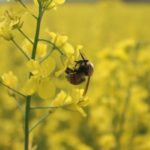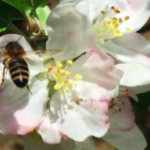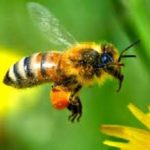-
Contaminated Wildflower Nectar and Pollen Puts Bees and Humans at RiskAs first reported by Sustainable Pulse, Contaminated Wildflower Nectar and Pollen Puts Bees and Humans at Risk. Bees are likely to be at high risk from exposure to glyphosate, the most widely used weedkiller in the world, via contaminated wildflower nectar and pollen after pre-harvest spray...
-
Roundup is Not Just a Carcinogenic Herbicide. It’s a Bee Killing Pesticide Too.Happy Earth Day! Please do something for the earth today. Read this article and take action below! Thank you! A new study released April 6, 2021, in the Journal of Applied Ecology reveals that Roundup, the most widely used herbicide in the world, and the focus of recent lawsuits regarding non...
-
Dr. Jonathan Lundgren: USDA WhistleblowerDr. Jonathan Lundgren’s career was thriving! He is an agroecologist, entomologist and was a senior research scientist with the USDA ARS (Agricultural Research Services). He won an award for being the best young scientist out of 1,000, which was the highest honor given to young scientists by...
-
News for Foodies – April 2013Subscribe now https://fintegrity.wpengine.com/2013/03/20/welcome-to-food-integrity-now/ On Wednesday, April 24, 2013, Sen. Barbara Boxer (D-Calif.) and Rep. Peter DeFazio (D-Ore.) introduced Bills to the Senate and House of Representatives that would require food manufacturers to clearly label an...
-
June Stoyer of The Organic View: Neonicotinoids and Our Disappearing BeesWhat is happening to our bee population? How do systemic pesticides called neonicotinoids affect our bee population? June Stoyer of The Organic View discusses these questions and the fate of the bees if something does not change. In the United States, neonicotinoids, a systemic class of pesticide...




